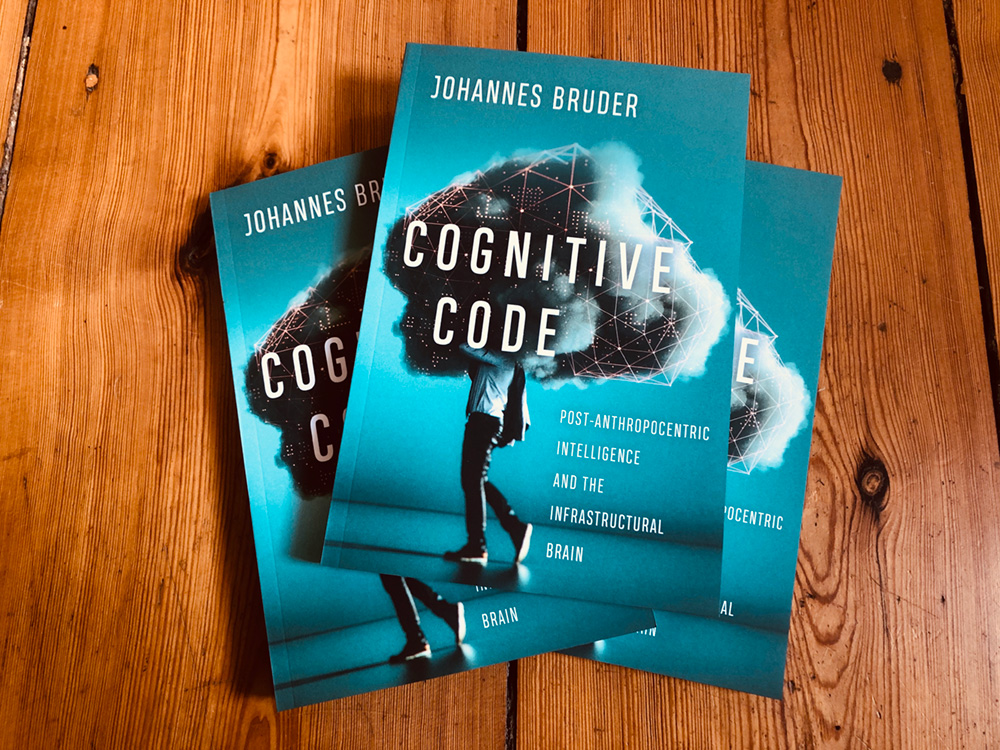Out now: Cognitive Code
Post-Anthropocentric Intelligence and the Infrastructural Brain

As the second decade of the twenty-first century draws to a close, the cultural, social, and economic effects of artificial intelligence are becoming ever more apparent. Much current research rightfully emphasizes the statistical lineages of current machine learning techniques and engages with the significance of training data in producing more just modes of pattern recognition. Exchanges between cognitive neuroscience and artificial intelligence research are often overlooked, despite or because of their long-intertwined histories and a long list of faulty analogies between brains and computers – but they exist.
In his new book «Cognitive Code», Johannes Bruder provides some insights into shared epistemologies and contemporary interactions between the brain sciences and AI. An emphasis is placed on the work of methodologists and programmers, who are tasked with modeling information processing in human brains or implementing mind wandering in machine learning algorithms. Psychic lives and high tech imaginaries meet in the medium of code.
Read parts of the introduction in the most recent issue of Queen’s Quarterly.
The book has been published by McGill-Queen’s University Press.




